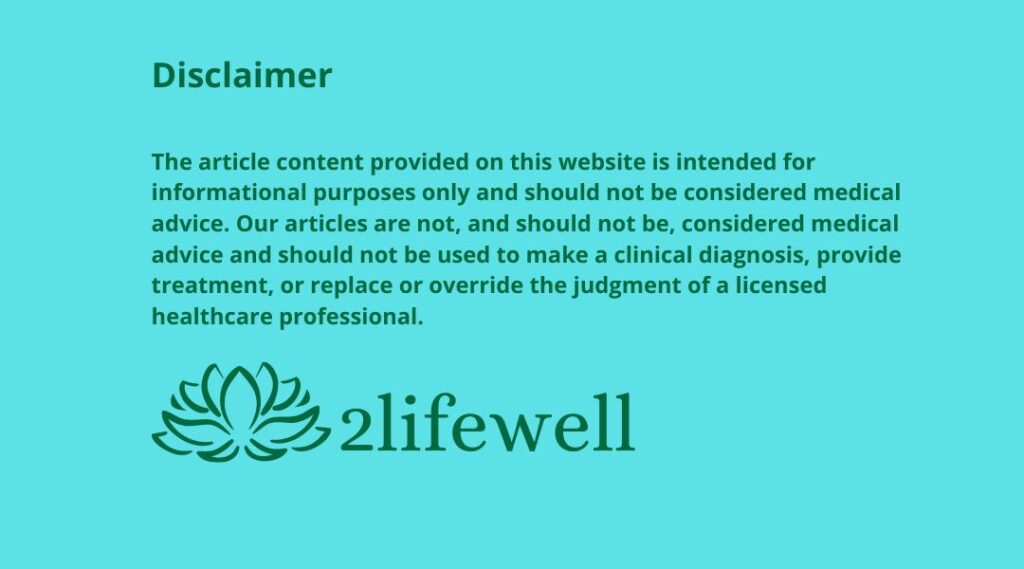
Vices and Mindfulness
Vices are behaviors or habits that have negative effects on an individual’s health and well-being. These can include substance abuse, excessive gambling, overeating, compulsive shopping, and more. While vices may provide temporary pleasure or relief, they often lead to long-term consequences such as addiction, physical health issues, and mental health disorders.
Mindfulness, on the other hand, is a practice of paying attention to the present moment with openness, curiosity, and acceptance. It involves being aware of one’s thoughts, feelings, bodily sensations, and surroundings without judgment. Mindfulness techniques, such as meditation, deep breathing exercises, and body scanning, have gained recognition for their potential to aid in the treatment of various mental health conditions and addictive behaviors.
Tip: To incorporate mindfulness into your daily routine, start with short meditation sessions each day. Set aside a few minutes to sit quietly, focus on your breath, and observe your thoughts without judgment. Over time, you can gradually increase the duration of your practice and explore different mindfulness techniques that resonate with you.
Understanding Vices: Causes and Impacts
Vices can arise from various factors, including genetic predisposition, environmental influences, psychological triggers, and social pressures. Individuals may turn to vices as a means of coping with stress, trauma, or emotional pain, seeking temporary relief or distraction from their challenges. Over time, these behaviors can develop into compulsive patterns that negatively affect all aspects of life, including relationships, finances, and overall well-being.
The impacts of vices can be profound, leading to physical health problems such as liver disease, heart issues, and obesity, as well as mental health disorders like depression, anxiety, and substance dependence. Vices can also contribute to social isolation, legal troubles, and financial instability, further exacerbating the cycle of addiction and dysfunction.
Tip: If you’re struggling with a vice, consider keeping a journal to track your triggers, cravings, and emotions. Identifying patterns in your behavior can help you develop strategies for coping with cravings and managing stress more effectively. Additionally, reach out to a trusted friend, family member, or mental health professional for support and guidance on your journey to recovery.
The Role of Mindfulness in Addressing Vices
Mindfulness offers a unique approach to addressing vices by promoting self-awareness, emotional regulation, and impulse control. Through mindfulness practices, individuals can learn to observe their thoughts and feelings without immediately reacting to them. This increased awareness allows for more conscious choices and the ability to interrupt habitual patterns of behavior associated with vices.
Research has shown that mindfulness-based interventions can be effective in reducing cravings, relapse rates, and overall substance use. By cultivating mindfulness, individuals develop greater resilience to stress, increased capacity for self-soothing, and improved emotional well-being. These benefits are particularly valuable in the context of addiction recovery, where managing cravings and navigating triggers are common challenges.
Tip: Incorporate mindfulness into your daily routine by setting aside dedicated time for meditation, deep breathing exercises, or mindful movement practices such as yoga or tai chi. Consistency is key, so aim to practice mindfulness regularly to experience its full benefits in addressing vices.
Practical Strategies for Integrating Mindfulness into Recovery
Integrating mindfulness into the recovery process requires commitment and consistency. Here are some practical strategies to help individuals incorporate mindfulness into their journey towards overcoming vices:
- Mindful Eating: Pay attention to the sensations of eating, such as taste, texture, and aroma. Eat slowly and savor each bite, noticing how the food nourishes your body.
- Mindful Movement: Engage in physical activities mindfully, such as walking, running, or practicing yoga. Focus on the sensations of movement and the rhythm of your breath.
- Mindful Breathing: Practice deep breathing exercises to calm the mind and body. Take slow, deliberate breaths, focusing on the sensation of the breath entering and leaving your body.
- Mindful Awareness: Cultivate present-moment awareness throughout the day by bringing attention to your thoughts, emotions, and bodily sensations. Notice any cravings or triggers that arise without judgment, allowing them to pass without acting on them.
- Mindful Reflection: Take time for self-reflection and introspection, exploring the underlying causes and triggers of your vices. Use mindfulness techniques to observe your thoughts and feelings with compassion and curiosity.
Tip: Experiment with different mindfulness practices to find what resonates best with you. Remember that mindfulness is a skill that develops over time, so be patient and gentle with yourself as you navigate your journey towards recovery.
Building Mindfulness into Daily Life
Incorporating mindfulness into daily life is essential for maintaining long-term recovery from vices. Here are some additional tips for integrating mindfulness into your everyday activities:
- Mindful Communication: Practice active listening and speaking with intention and compassion. Be fully present in conversations, giving your full attention to the speaker without judgment or distraction.
- Mindful Work: Bring mindfulness into your work environment by taking regular breaks to pause, breathe, and refocus your attention. Use mindfulness techniques to manage stress and enhance productivity.
- Mindful Relationships: Cultivate mindful relationships by nurturing connection, empathy, and understanding with others. Practice kindness, gratitude, and forgiveness in your interactions, fostering deeper connections and mutual support.
- Mindful Leisure Activities: Engage in leisure activities mindfully, whether it’s reading, gardening, or spending time in nature. Be fully present and engaged in the moment, savoring the experience without rushing or multitasking.
- Mindful Self-Care: Prioritize self-care and well-being by incorporating mindfulness into your self-care practices. Set aside time for activities that nourish your body, mind, and soul, such as meditation, journaling, or spending time in nature.
Tip: Create a daily mindfulness routine that includes a variety of practices tailored to your preferences and lifestyle. Consistency and commitment are key to reaping the benefits of mindfulness in all areas of your life.
Cultivating Gratitude and Acceptance

In addition to mindfulness, cultivating gratitude and acceptance can further support recovery from vices. Gratitude involves acknowledging and appreciating the positive aspects of life, while acceptance involves embracing reality as it is without resistance or judgment. Together, these practices promote emotional resilience, contentment, and a sense of peace amidst life’s challenges.
Research has shown that gratitude and acceptance are associated with greater psychological well-being, improved relationships, and enhanced resilience to stress. By fostering these qualities, individuals can develop a more balanced perspective on life and navigate the ups and downs of recovery with greater ease.
Tip: Start a gratitude journal to regularly reflect on the things you’re grateful for in your life, no matter how small. Practice acceptance by letting go of the need for control and embracing uncertainty and imperfection as natural parts of the human experience.
Overcoming Challenges and Building Resilience
Recovery from vices is not without its challenges, but mindfulness, gratitude, and acceptance can help individuals build resilience and navigate obstacles more effectively. Here are some strategies for overcoming common challenges in the recovery journey:
- Mindful Coping: Use mindfulness techniques to cope with cravings, triggers, and challenging emotions. Instead of reacting impulsively, pause and observe your experience with curiosity and compassion.
- Gratitude Practice: Lean on your gratitude practice during difficult times to shift your focus towards the positive aspects of your life. Cultivating gratitude can provide a sense of perspective and remind you of the progress you’ve made on your journey.
- Self-Compassion: Be kind to yourself and practice self-compassion as you navigate the ups and downs of recovery. Treat yourself with the same kindness and understanding you would offer to a friend facing similar challenges.
- Seek Support: Reach out for support from friends, family, support groups, or mental health professionals when needed. Connection and community can provide encouragement, validation, and accountability on your path to recovery.
- Embrace Imperfection: Accept that setbacks and relapses are a natural part of the recovery process. Instead of viewing them as failures, see them as opportunities for growth and learning. Approach each day with a sense of curiosity and openness to new experiences.
Tip: Develop a toolbox of coping strategies that includes mindfulness, gratitude, self-compassion, and social support. Having a variety of tools at your disposal can help you navigate challenges more effectively and build resilience over time.
Mindfulness-Based Therapies and Programs
Mindfulness-based therapies and programs have emerged as effective approaches for addressing vices and promoting recovery. These interventions integrate mindfulness practices with evidence-based therapeutic techniques to support individuals in their journey towards healing and transformation.
Some common mindfulness-based therapies and programs include:
- Mindfulness-Based Stress Reduction (MBSR): A structured program that combines mindfulness meditation, body awareness, and yoga to reduce stress and enhance well-being.
- Mindfulness-Based Cognitive Therapy (MBCT): Integrates mindfulness practices with cognitive therapy techniques to prevent relapse in individuals with depression and other mental health conditions.
- Dialectical Behavior Therapy (DBT): Incorporates mindfulness skills training as part of a comprehensive treatment approach for individuals with borderline personality disorder, substance use disorders, and other emotional dysregulation issues.
- Acceptance and Commitment Therapy (ACT): Utilizes mindfulness and acceptance strategies to help individuals develop psychological flexibility and values-based living, reducing the impact of vices and promoting recovery.
Tip: Explore mindfulness-based therapies and programs that align with your needs and preferences. Work with a qualified therapist or facilitator who can guide you through the process and provide support along the way.
Mindfulness in Relapse Prevention
Mindfulness plays a crucial role in relapse prevention by increasing self-awareness, emotional regulation, and coping skills. Here are some ways mindfulness can support individuals in maintaining sobriety and preventing relapse:
- Awareness of Triggers: Mindfulness helps individuals identify and recognize triggers for addictive behaviors, such as stress, negative emotions, or social situations. By becoming aware of these triggers, individuals can develop strategies to cope with them effectively.
- Managing Cravings: Mindfulness techniques, such as urge surfing and mindful breathing, can help individuals ride out cravings without acting on them. By observing cravings with curiosity and non-judgment, individuals can reduce their intensity and duration.
- Coping with Stress: Mindfulness practices promote relaxation and stress reduction, helping individuals manage stressors without resorting to vices. By cultivating mindfulness, individuals develop healthier coping mechanisms and greater resilience to stress.
- Emotional Regulation: Mindfulness teaches individuals to observe their emotions without becoming overwhelmed or reactive. By practicing mindfulness, individuals can respond to challenging emotions in a more balanced and constructive manner, reducing the risk of relapse.
- Staying Present: Mindfulness encourages individuals to stay present-focused rather than dwelling on past mistakes or worrying about the future. By staying grounded in the present moment, individuals can avoid rumination and maintain their commitment to sobriety.
Tip: Develop a relapse prevention plan that includes mindfulness techniques, coping strategies, and social support networks. Regularly review and update your plan to ensure it remains relevant and effective in supporting your recovery journey.
Incorporating Mindfulness into Aftercare
Aftercare is an essential component of long-term recovery, and mindfulness can be a valuable tool in maintaining sobriety and promoting overall well-being. Here are some ways to incorporate mindfulness into aftercare:
- Continuing Practice: Maintain a regular mindfulness practice beyond formal treatment programs. Set aside time each day for meditation, deep breathing exercises, or other mindfulness techniques to support your ongoing recovery.
- Mindful Living: Integrate mindfulness into all aspects of your life, including work, relationships, and leisure activities. Approach each moment with awareness, curiosity, and acceptance, cultivating mindfulness in everyday experiences.
- Support Networks: Stay connected to supportive communities and individuals who share your commitment to mindfulness and sobriety. Participate in mindfulness-based support groups, online forums, or peer-led recovery communities to stay motivated and inspired.
- Professional Guidance: Seek guidance from qualified therapists or mindfulness instructors who can provide ongoing support and guidance in your mindfulness practice. Attend mindfulness retreats, workshops, or classes to deepen your understanding and skills.
- Self-Compassion: Practice self-compassion and kindness towards yourself as you navigate the ups and downs of recovery. Treat yourself with the same care and understanding you would offer to a friend facing similar challenges.
Tip: Create a personalized aftercare plan that incorporates mindfulness techniques, self-care practices, and ongoing support resources. Be proactive in seeking out opportunities for growth, learning, and connection as you continue your journey of recovery.
The Mindful Journey: Embracing Growth and Transformation
Recovery from vices is not just about abstaining from addictive behaviors; it’s also a journey of personal growth and transformation. Mindfulness provides a framework for embracing this journey with openness, curiosity, and compassion. Here are some key aspects of the mindful journey:
- Self-Discovery: Mindfulness encourages individuals to explore their inner landscape with curiosity and non-judgment. Through mindfulness practices, individuals can uncover deeper insights into themselves, their values, and their purpose in life.
- Emotional Healing: Mindfulness fosters emotional healing by allowing individuals to process and release unresolved emotions from the past. By practicing mindfulness, individuals can develop greater emotional resilience and a sense of inner peace.
- Self-Acceptance: Mindfulness promotes self-acceptance by cultivating a compassionate attitude towards oneself. Instead of striving for perfection or self-criticism, individuals learn to embrace themselves as they are, flaws and all.
- Authentic Living: Mindfulness encourages individuals to live authentically, aligning their actions with their values and intentions. By staying true to themselves and their aspirations, individuals can create a meaningful and purposeful life free from the constraints of vices.
- Connection and Community: Mindfulness fosters connection and community by bringing individuals together in shared practice and support. By participating in mindfulness-based groups, individuals can find acceptance, belonging, and inspiration on their journey of recovery.
Tip: Embrace the mindful journey as an opportunity for growth, learning, and self-discovery. Approach each moment with openness and curiosity, trusting in your innate capacity for resilience and transformation.
Embracing Mindfulness on the Path to Recovery
The mindfulness offers a powerful tool for addressing vices and promoting recovery. By cultivating mindfulness, individuals can develop greater self-awareness, emotional regulation, and coping skills, empowering them to navigate the challenges of recovery with grace and resilience.
As you embark on your journey of recovery, remember that mindfulness is not a quick fix or a cure-all solution. It is a lifelong practice that requires patience, commitment, and self-compassion. By integrating mindfulness into your daily life and recovery journey, you can cultivate a deeper sense of presence, purpose, and peace.
Tip: Start small and be gentle with yourself as you explore mindfulness. Experiment with different techniques and practices to find what resonates with you, and don’t hesitate to seek support from qualified professionals or supportive communities along the way.
Books:
1. “The Mindful Path to Addiction Recovery” – by Lawrence Peltz. https://amzn.to/4eoj70u
- This book offers a comprehensive look at how mindfulness can be used to overcome violence and offers daily practices for those in recovery.
2. “Recovery: Freedom from Our Addictions” – by Russell Brand. – https://amzn.to/4dYN5Il
- Although more popular, this book combines personal experiences with mindfulness practice for the recovery process.
Scientific articles:
– Brewer, J. A., et al. (2011). “Mindfulness training for smoking cessation: Results from a randomized controlled trial.”
Drug and Alcohol Dependence. This study shows how mindfulness training can help reduce smoking addiction, highlighting the effectiveness of the practice compared to traditional methods.
– Garland, E. L., et al. (2014). “Mindfulness-Oriented Recovery Enhancement versus CBT for co-occurring substance dependence and pain: Results from a randomized controlled trial.”Psychotherapy and Psychosomatics.
This article discusses the benefits of mindfulness in reducing addictions associated with chronic pain.
– Bowen, S., et al. (2014). “Mindfulness-Based Relapse Prevention for Substance Use Disorders: A Pilot Efficacy Trial.”
Substance Abuse. This research explores how mindfulness can prevent relapse in people recovering from addiction.
Improve your searches in:
– American Mindfulness Research Association (AMRA): The AMRA website offers a wide range of studies and articles on how mindfulness is applied in various contexts, including addictions. – Mindfulness-Based Relapse Prevention (MBRP): This is a specific approach that uses mindfulness to prevent relapse in people recovering from addictions.

